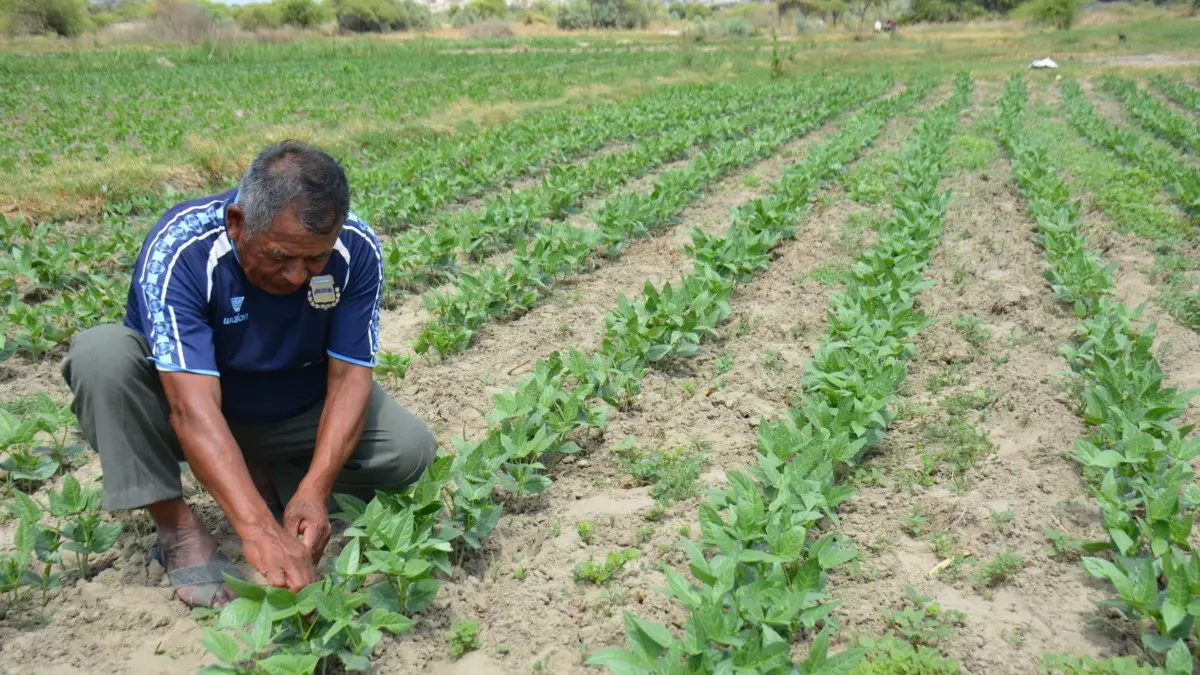Are technological solutions possible to improve agriculture in Piura and northern Peru?
This is one of the questions that we wanted to broaden by talking with Gala García, manager of Symborg in Latin America, a company that contributes to improving the production (from 8 to 20%) of many crops such as bananas, mangoes or grapes.
Symborg It is made up of a group of experts in research and development of biotechnology and agricultural innovation.
What is Symborg’s track record in the agricultural sector?
Symborg arrives in Latin America in 2014, to Chile and Peru. We arrived focused on the grape and avocado industry. We started working in Piura and continued to the south of Peru, with very good results. We are always focused on helping producers through biotechnology, to maximize harvests so that they can produce more and better.
Do you only work with agro-exporters?
Our focus has always been agribusiness. We have just signed an agreement to also address traditional crops, thinking of bringing biotechnology to these crops. But, until 2020, our focus has been agribusiness.
What has been the experience with avocados and grapes, two flagship products of northern agro-exports?
We have grown up with them. Our idea was to focus on a crop such as grapes that needed to greatly enhance the motor of the roots to provide quality and generate the expected productions. We seek to help the producer to generate better roots, to have a more alive soil that would allow him to improve his fertilization programs.
The grape and the avocado have been a challenge. The production numbers and the increase in your customers show that you are doing an excellent job. They produce more and more and of better quality. Production is taken to parts of the world where they did not reach before.
What other problem does technology to improve crops face? The north is a desert with little water …
The objective has always been to provide solutions. We start with the Glomus iranicum fungus, a very powerful strain to work in poor soils such as those of northern Peru: very saline, with quite extreme temperature conditions and with little organic matter.
This strain is generated in Murcia (Spain), a region that is also a desert with desalinated water and very poor conditions to produce. We learned these conditions and related it to what could be seen in Peru.
We have developed other products such as soil regenerators and our latest technological proposal, BlueN, a nitrogen-fixing bacteria.
In figures: how much does technology improve agricultural production?
In Peruvian soils, we have seen productive increases of up to 20%. Obviously, when you have good soil conditions you can see other increases. The soils of Peru have many problems but with biotechnology good results can be obtained. You can quickly increase production and make better use of water and fulfill what was planned.
If we talk about grapes, what is the contribution of technology in the production of this product?
Our products work with 80% of the grape species. Both the Red Globe, which is one of the oldest varieties, or the new ones, can be seen enhanced with technology.
For example, Glomus Iranicum is a product that gives much more absorbent root to the grape. This product allows you to give the plant the food it needs.
The latest product we have is BlueN, a nitrogen fixing bacteria. In organic farming, nitrogen is the first handicap that occurs because they are very expensive sources of nitrogen.
Has Symborg added experience with mango, banana and cocoa?
In the organic banana of Piura we have had experience. In the mango we have started the experience because it is a crop that, although it is very focused on agro-export, in its management is very traditional. Entering with new technologies has been difficult but more and more producers are approaching these lines to increase quality and production.
In e cacao we have approached it in the jungle. We have been with the traditional crop thinking of solving some current problems in its management.
Small agriculture is a large number in Peru. Does Symborg work in this sector?
We have experience with associations that bring together small producers. Associations are looking for this technology. It should be noted that a small producer does not usually admit this type of technology the first time.
The small producer is a niche that we want to address. We are interested in entering traditional cultivation because technology must not only contribute to agribusiness but is also a tool for small producers.
Hence, we have taken that turn and sought this alliance with HORTUS. They have many stores, they have an important sales force, they reach different parts of small producers very well. The idea is to show that biotechnology is a solution for everyone.
Is the small farmer afraid to use technology? Or do you not use it due to lack of money or because you trust more in your knowledge?
It’s because they don’t know her. We have not reached them with the message. The idea is to be able to show them and then the farmers can decide. Experience has shown us that it can be an alternative, even the small producer is concerned about producing more or doing it in a more sustainable way. In the end, these small producers also sell to associations or large corporations.
How does the fear of the use of technology in agriculture work?
For me it is not a fear. I would not have made the decision to enter the more traditional cultivation without thinking that there is any kind of fear. Agriculture has to grow because we have many mouths to feed and, if we are not able to improve production throughout the world, we will not eat. There is no fear. As long as we continue to improve production, it will be better for everyone.
What does it take for technology to empower the agricultural sector?
This year has taught us a lesson in how important agriculture is. The world has stopped but the producers have continued working in the field.
Innovation in agriculture has to come and the pandemic has accelerated it. New development lines and processes have been automated.
In order for innovation to develop, there must be innovative companies, producers and governments that are committed to technology as a tool. Innovation must start from the small to the large producer.
Any Symborg innovation for the northern region?
Innovation is something we already have. We have BlueN, a bacteria that fixes nitrogen from the air. This is the first bacterium to work in this line and is capable of providing up to 40% of nitrogen fertilization for crops. When we told a rice producer in Jaén, they looked at us in surprise: “Can we really save four bags of sulfate and put this bacteria on?”
He must know
- Symborg is a company that has subsidiaries in Brazil, Chile, China, Spain, the United States, France, Mexico, Peru and Turkey and its products are used in more than 50 countries.
Subscribe to InfomercadoWeekly Email Newsletter
Discover the best news summary. It is only one email a week. We will not fill your inbox! Also, you can get out whenever you want.
———- –


